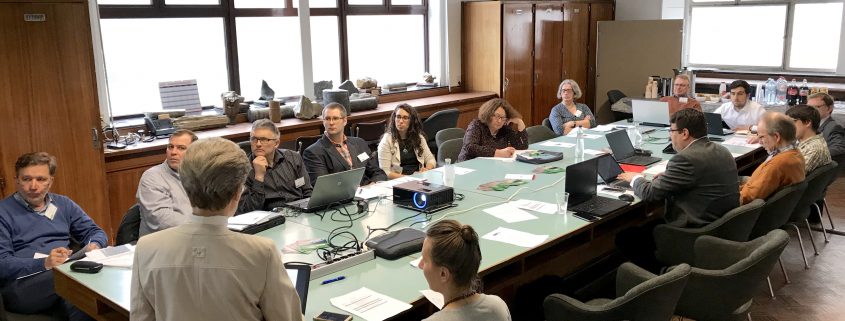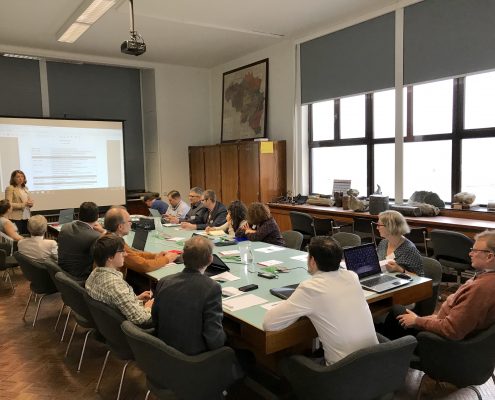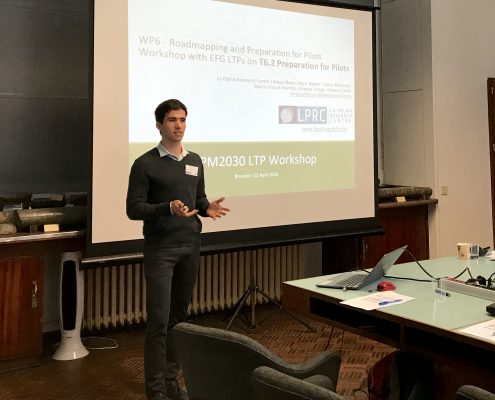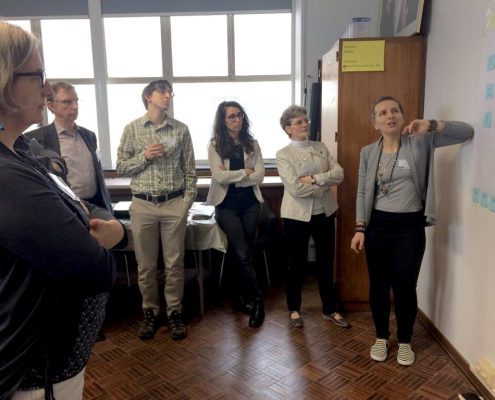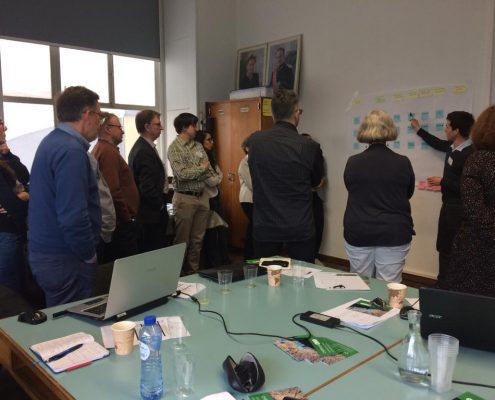CHPM2030 LTP Orientation workshop, Brussels
The European Federation Geologists organized an orientation workshop for the National Associations (Linked Third Parties), involved in CHPM2030 project. The workshop was connected with WP6 – Roadmapping and Preparation for Pilots, managed by La Palma Research Centre. Earlier in the project, the LTPs were involved in data availability, and now in WP6 the focus shifts to data evaluation. The aim of the event was to update the LTPs about the recent development of the project and to create guidelines and instructions for CHPM prospective areas selection & evaluation.
The workshop started with a welcome and opening from Isabel Fernandez (EFG), followed by Éva Hartai’s (UNIM) presentation about the the project as a whole at its latest development stage. The next talk, by Gerhard Schwarz (SGU), presented the data availability and summary of country reports, that has been done earlier in the project. Tamas Madarasz (UNIM), then explained the details of the CHPM technology building blocks: underground heat exchanger, production pump, metal recovery at high pressure/temperature), surface heat exchanger in the geothermal power plant, gas diffusion electro-precipitation metal recovery, salt gradient power generation, injection well. The next presentation, by Tamas Miklovicz (LPRC), introduced the overall picture at WP6 level, and explained objectives for the study area evaluation. Before the workshop, Anita Demény, from EFG, further detailed the objective of the LTP efforts.
The workshop was divided in two parts: area selection and area evaluation for CHPM technology application. The first part was an example-led discussion, while considering different geological cases and deciding whether it was of interest for the project or not. The second part was dedicated to develop and elaborate an a harmonised framework, that will guide a possible study area evaluation for CHPM potential.
The workshop was very successful in both updating the LTPs on the latest CHPM technology development and on gathering ideas and adjusting the framework for study areas’ evaluation. During 2018, the LTPs will be selecting and evaluating areas in Europe, where the CHPM technology could be applied in the future, thus creating an EU spatial database for prospective locations.

